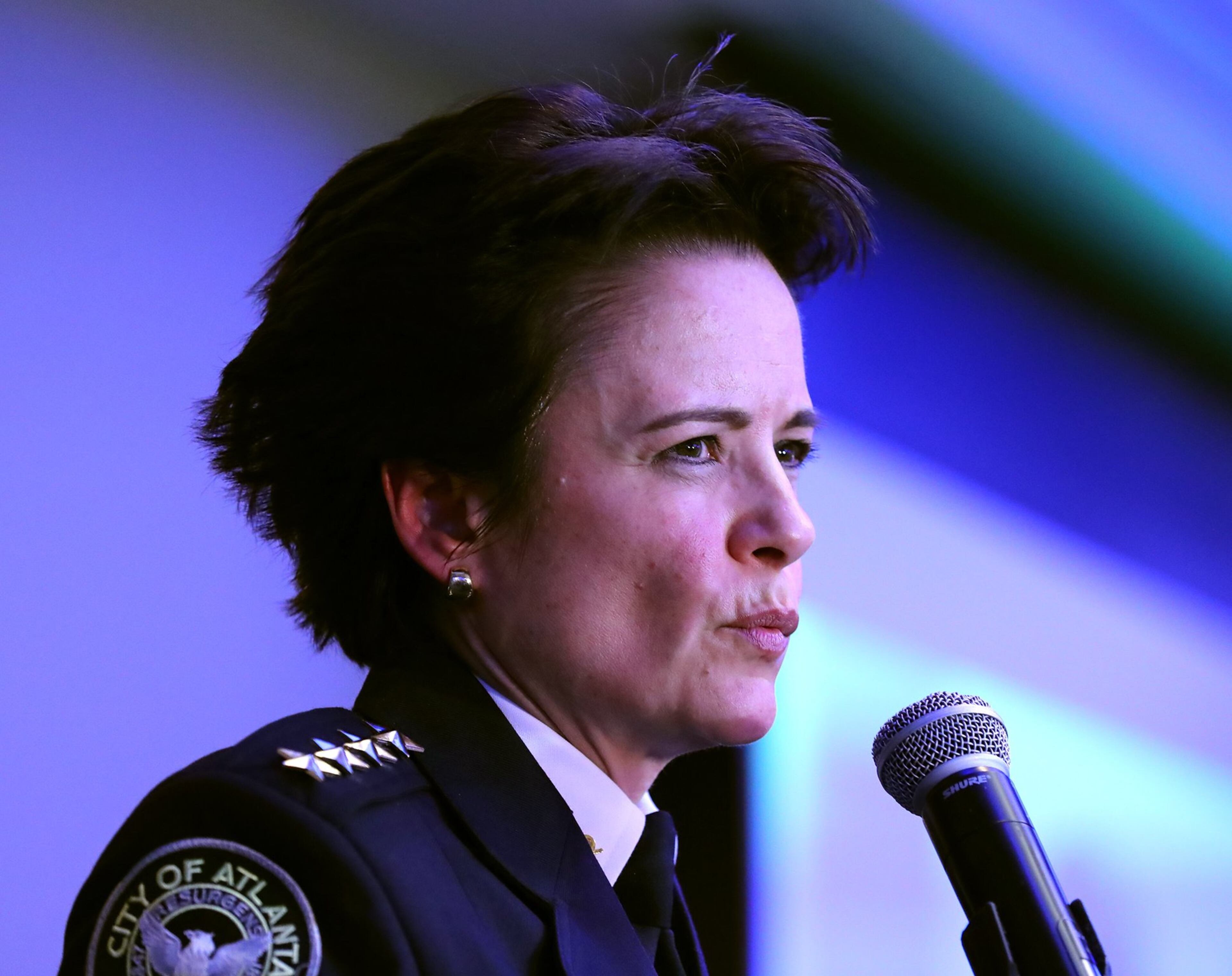Atlanta police pay lags behind other metro cities, study says

At almost every level and rank, Atlanta police are paid below the median rates of their law enforcement peers, with a lower floor, lower ceiling and a longer wait to advance from the bottom to the top, a compensation study commissioned by the Atlanta Police Foundation found.
That’s left APD with fewer officers coming — unimpressed by a flat rate about 20 percent less than peers from 10 comparable national markets and four state and local agencies — and more officers, who, in some cases, make even a greater percentage less that contemporaries, going. For roughly every 100 officers hired, 250 are leaving each year, Atlanta Police Foundation CEO and President Dave Wilkinson said Thursday.
RELATED: Georgia Police pay hikes spark salary fight
RELATED: Atlanta police overtime under scrutiny
Although the numbers haven’t previously been so stark, officer compensation is a longstanding complaint. Left to fester any longer and the situation will near “crisis level,” Wilkinson said.
But will it finally be addressed? Wilkinson said he’s confident, saying the new mayor, Keisha Lance Bottoms, is “100 percent committed” to making APD’s compensation more competitive.

That would require $28 million, a figure unattainable overnight, Wilkinson acknowledged, but one that can be reached within the next three to four years.
In a statement, Bottoms reiterated her support, noting the 3.1 percent pay raise for police officers in the most recent city budget was "not enough."
“This study shows us what we already knew – that we need to double down on our efforts to make Atlanta the safest big city in America,” said Bottoms, adding she has directed the city’s chief operating officer and chief financial officer to work with Wilkinson and Police Chief Erika Shields to develop a formal proposal for additional raises.
They’ve also adopted a different strategy, framing it not around fairness but on public safety. At the year’s halfway point, Atlanta’s crime rate rose slightly from the same time in 2017.
“Crime will go up” if the pay issue isn’t tackled immediately, said Wilkinson, who believes the first priority should be hiring new officers. “We’ve been experiencing a long trajectory of crime going down but, due to a lack of police officers on the street, that trend is bound to change. Our officers are having to be proactive, not reactive..”
While APD is losing officers at twice the rate of their peers, losing roughly 250 officers annually, Atlanta is recruiting only about 100 new officers annually, a figure that’s been fairly consistent over the past three years, Wilkinson said.
“It all starts with pay,” said Wilkinson, who believes those retention and recruitment numbers can be flipped.

The study by Mercer, a global consulting firm that specializes in compensation review, compared APD to 10 departments nationwide, including Charlotte, Dallas, Nashville, Boston and Phoenix, and four local and state agencies (Brookhaven, Alpharetta, Sandy Springs and the Georgia State Patrol). It found that APD’s pay for recruits falls 20 percent below the market ranges. That disparity holds true through the rank of lieutenant, the study found:
“In each case, APD’s upper-tier pay for a given rank is near or below the low end of the market for the same position.”
APD recruits are paid a flat $34,726, about $8,000 less than Sandy Springs though roughly $3,000 more than Alpharetta. Nationally, Nashville recruits average about $6,000 more and in Seattle, the median recruit pay is $58,902.
The median pay for officers shows even a greater variance: 27.4 percent. APD’s is 27.4 percent beneath the agencies Mercer compared it to, at $45,423. Alpharetta police officers have a median salary about $6,000 higher, while it’s closer to $10,000 more in Sandy Springs and Brookhaven. And in many of those departments, officers are given take-home patrol cars; Atlanta police officers are not.
The disparities continue through the ranks. The median pay for APD investigators is nearly a third below their peers, while deputy chiefs make 16.5 percent less.
Atlanta City Councilman Dustin Hillis told the AJC recently that APD is nearing a 20 percent vacancy rate that he believes is tied most prominently to the pay issue.
“We have recruitment and retention issues because we have compensation issues, and that’s pretty obvious,” Hillis said.
Wilkinson said the Mercer study should give APD officers some hope because “for the first time I believe we’re going to get this done.”
If nothing else, he said, “there’s a report out there which is going to be used to hold them accountable.”



